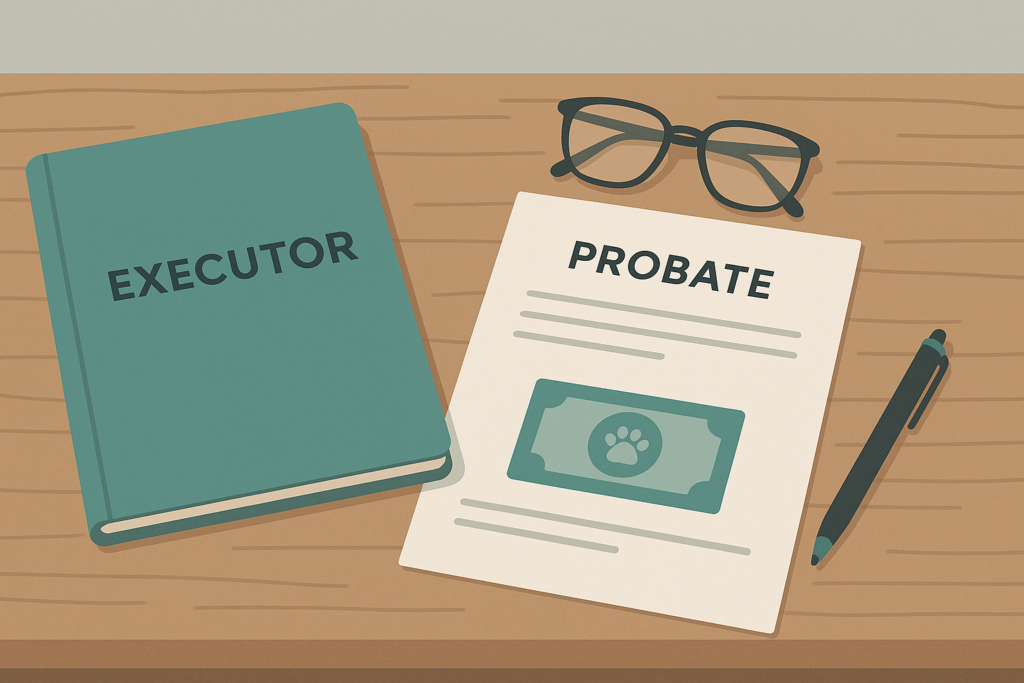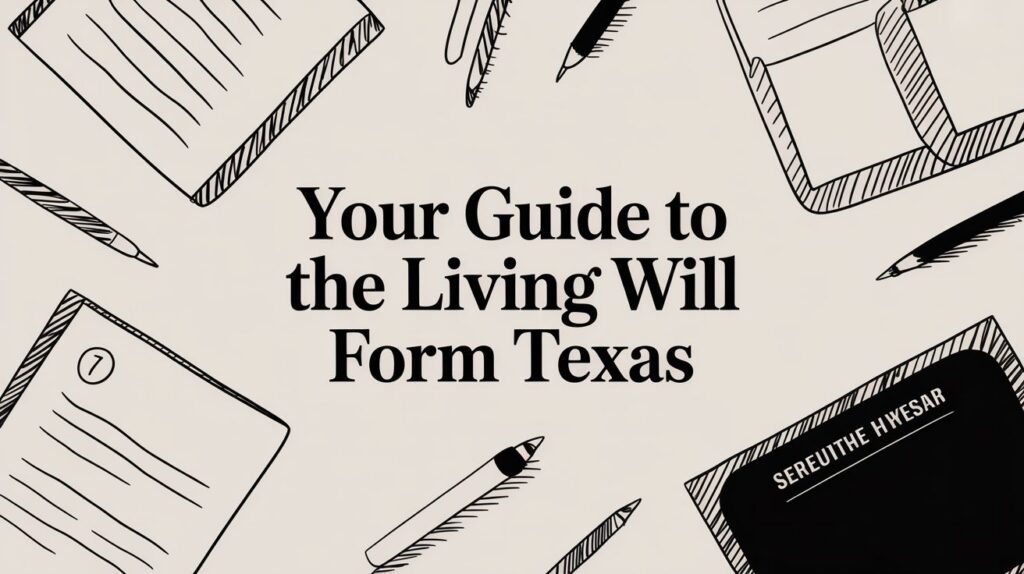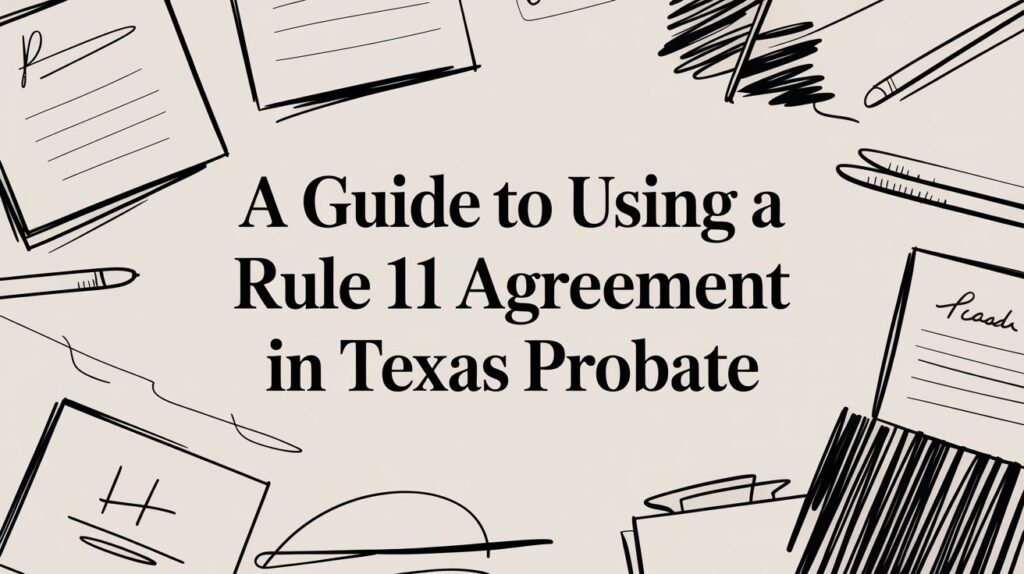In the realm of estate planning, a legally valid will is supposed to be the voice of the deceased—a written expression of their final wishes regarding how their property should be distributed. But what happens when that voice vanishes? Imagine the scenario: a loved one passes away, and family members are confident a will exists. Maybe they even read it at some point or remember the decedent talking about it in great detail. But now, no one can find the document. The original is missing, and any known copies may not hold up in court.
This is not just a dramatic plot from a crime novel. In Texas, cases of missing or destroyed wills are surprisingly common, and the consequences can be severe. Disputes over vanished wills often lead to prolonged legal battles, fractured families, and outcomes that may not reflect the wishes of the deceased at all. Understanding what happens when a will goes missing—and what the courts are likely to do in response—can help families protect themselves from unwanted surprises and navigate these murky legal waters.
When the Will Is Gone: Legal Assumptions and Texas Law

Under Texas law, a will must be proven in probate court to be legally enforceable. Generally, the court requires the original signed will to validate the decedent’s instructions. If that original is missing and no explanation is immediately clear, the court may presume the will was intentionally revoked. This is a key distinction in Texas probate law: a missing will isn’t automatically treated as lost or stolen; it may be presumed destroyed on purpose by the testator.
This presumption is based on the idea that if a person had possession of the original will during their lifetime, and the will cannot be found after death, the most likely reason is that they chose to revoke it. If this presumption stands, the estate is distributed according to Texas intestacy laws, which means the assets are handed out as if the decedent died without a will at all. For many families, this results in outcomes that are completely contrary to what the deceased had wanted.
However, this presumption is not absolute. If someone can offer strong evidence that the will existed, was valid, and was not intentionally revoked, Texas courts may still admit a copy or even testimony in place of the original. That said, the burden of proof in these cases is high, and the challenges are both emotional and legal.
Proving a Lost Will in Texas
When a will has vanished, but heirs or beneficiaries still want it enforced, they must initiate what’s known as a “lost will proceeding.” This is a probate case where the court is asked to accept a copy of a will, or sometimes even oral testimony about its contents, in place of the original document.
In Texas, to probate a lost or destroyed will, the applicant must prove several critical facts. First, they must show that a valid will once existed and was properly executed according to Texas law. This usually means there was a signed document witnessed by two individuals who can attest to the testator’s mental capacity and intent.
Second, the applicant must demonstrate the contents of the missing will. This can be done with a signed copy or with detailed testimony from people who read the original. In some rare cases, a summary of the will’s contents written down by a witness might be enough, but this carries much less legal weight.
Finally, and most importantly, the applicant must rebut the presumption of revocation. That means they must prove to the court that the testator did not intentionally destroy or revoke the will. This can be an uphill battle. Courts will look at who had access to the will, where it was usually stored, and whether there is any evidence that the decedent changed their mind about their estate plan before they died.
Who Benefits from a Vanishing Will?

A recurring theme in these cases is the possibility of foul play, whether subtle or direct. When a will that favors certain beneficiaries disappears, and the new default distribution benefits someone else, suspicions often run high. In some cases, the person who gains the most from the will’s disappearance may have had access to the decedent’s home or files. Unfortunately, Texas law does not require airtight security around estate documents, and proving tampering can be incredibly difficult without clear evidence.
Even so, courts will consider the circumstances surrounding the missing will. If a family member produces a compelling copy or digital version of the will, and the decedent had expressed their intentions in writing or verbally to others, the court may be more willing to question the revocation presumption. But if the only available documentation favors one party, and others challenge it, the probate process can quickly spiral into litigation.
Practical Obstacles in Proving the Contents
Even when a will copy is available, simply submitting it to the court isn’t enough. A copy must be proven authentic, and the people who witnessed the original signing must generally be available to testify. This is where many lost will cases fall apart. Witnesses may have passed away, moved without leaving contact information, or forgotten the details of the signing. It may be impossible to validate the copy without credible testimony from at least one of the subscribing witnesses.
Texas also requires that an application to probate a lost will be filed within four years of the testator’s death. If a will surfaces after that deadline, even if it appears authentic, the court may be unable to accept it under Texas law unless fraud or concealment is proven.
In addition, digital copies and scanned versions are not automatically accepted in Texas probate courts. The state does not recognize electronic wills unless they meet specific statutory requirements, and few people have gone through that process. A PDF on someone’s computer, even if emailed to others, might not satisfy the legal standards for proving a valid will unless it can be traced to the original with credible evidence.
Avoiding the Mystery: How to Prevent Will Disappearance
The best way to prevent a vanishing will is proactive estate planning and document management. In Texas, it’s vital to make several clearly labeled copies of a will and to store the original in a secure, known location. Options include a fireproof safe at home, a bank safe deposit box, or your attorney’s office—though each option comes with its own considerations regarding accessibility after death.
It’s also wise to notify trusted family members or executors where the will is stored. The more people who are aware of the will’s existence and general contents, the harder it becomes for someone to hide or destroy it without suspicion.
Moreover, testators should revisit their wills periodically and consider leaving a paper trail of their estate planning process. Emails with their attorney, signed letters explaining their decisions, and even informal conversations with witnesses can become powerful evidence if the will later goes missing.
While Texas doesn’t currently allow for fully electronic wills in most cases, future legal reforms may change that. For now, keeping the original document safe and verifiable is the most effective protection.
What Happens Without a Will?
If no valid will is found or accepted by the court, the estate will be administered according to Texas intestacy laws. This means that the decedent’s assets will be distributed to their closest living relatives in a specific order: spouse, children, parents, siblings, and so on.
These default rules may seem fair in theory but often fail to reflect the deceased’s actual wishes. An unmarried partner may be left with nothing. Stepchildren may be excluded. A child with special needs may lose crucial financial support. Business interests and real estate may be divided in ways that destabilize long-standing plans. The legal structure is orderly, but it can feel brutally impersonal when applied to real-life situations.

Conclusion: Keeping the Will from Disappearing
The case of the vanishing will is more than a legal headache—it’s a potential emotional and financial crisis. In Texas, the legal presumption that a missing will was revoked can derail an entire estate plan unless the family is prepared to fight for what they believe was the decedent’s true intention. The best defense against this kind of chaos is a strong offense. That means not only drafting a well-considered will but also safeguarding the original, communicating clearly with loved ones, and revisiting your estate plan as circumstances evolve. The law gives people the power to shape what happens after they die—but only if their voice doesn’t vanish with them.








